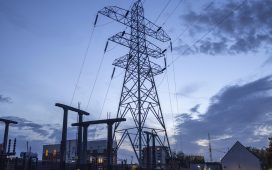[ad_1]
It is no surprise that a government fighting to save the prime minister’s job has focused its sights on one of its most persistent bugbears. It is a travesty nonetheless that questions over the future funding of the BBC appear to have been wrapped into “Operation Red Meat”, a series of populist announcements aimed at placating restive Tory backbenchers. In a fast-evolving media world, the BBC’s licence fee model should be reviewed in coming years. But this process should be entirely divorced from Boris Johnson’s own political travails.
For all its imperfections, the BBC is an essential pillar of British cultural life, and one of its best-known export brands. The government has itself hailed it as the “most trusted broadcaster worldwide”. It is a mainstay of the UK’s thriving creative arts industry. During school shutdowns in the pandemic, its educational broadcasts have been a lifeline for millions of families.
The rise of “fake news”, moreover, makes the role of quality, impartial public service broadcasting ever more vital. The political polarisation of the US, where commercial owners dominate broadcasting, is a cautionary tale.
With living costs soaring, the government must protect the less well-off. Yet increasing the £159 licence fee in line with inflation would have added about £10 a year, when energy costs are set to rise by around £700 a year for a typical family — partly due to a series of policy errors. The two-year freeze imposed by culture secretary Nadine Dorries looks at best like window-dressing, and at worst like vindictiveness.
A settlement imposed by chancellor George Osborne in 2015 forced the BBC into a five-year programme aimed at cutting costs by £1bn a year, compared with annual licence fee income of £3.7bn. Most savings until now, the National Audit Office says, came from spending on behind-the-scenes staff and improved productivity, but future savings would need to come from programmes and from a news division that has already faced heavy cuts.
Dorries partially backtracked from a tweet on Sunday suggesting the licence fee would be abolished in 2027, though this may be the government’s real intention. There are, to be sure, mounting reasons to review the system. Parts of what the BBC does can now be done by the commercial sector. Streaming services are proliferating. Young people consume media differently from their parents, and watch the BBC less. After Dorries added a warning that the BBC must address “impartiality problems” it is clear that a fee model originally meant to shield the broadcaster from interference has become a tool of political pressure.
Determining its future, however, should not be the preserve of a government of any one political hue. Proposals should be drawn up by a cross-party commission. It should start from the understanding that the BBC is a public good to be preserved, with some form of universal funding. It could examine the functions the BBC should continue to fulfil, and how best to finance it.
Remaining core functions should be broad enough to justify a compulsory fee and meet the needs of millions of Britons who rely on free-to-air broadcasting — though some add-on services might be sold on subscription. A German-style household levy, perhaps added to council tax, could remove the outdated link with TV ownership, allow an element of means-testing, and be easier to collect. These, though, are details to be thrashed out. The priority — as the Johnson government’s own behaviour has laid bare — is to equip a modernised BBC to continue fulfilling the key role it plays in upholding British democracy.
[ad_2]
READ SOURCE







